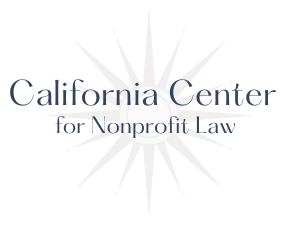
Ways and Means Committee Threatens Nonpartisanship of Charities
Some Congressional leaders appear to be questioning the impact of the Johnson Amendment on national elections.
A provision in Section 501(c)(3) of the Internal Revenue Code (IRC), which is commonly called the Johnson Amendment, has preserved the nonpartisan nature of charitable nonprofits, foundations, and religious organizations by prohibiting them from participating in political campaigns. Nonetheless, some Congressional leaders recently appear to be questioning the impact of this restriction on national elections. The California Center for Nonprofit Law can keep you updated on any legislation that may impact this restriction or other laws governing your nonprofit organization. We will ensure that you are aware of any changes in the laws or rules that affect your organization and help you implement any measures needed to remain compliant. Contact us today at (949) 892-1221 and see how we can help.
Understanding the Johnson Amendment
The Internal Revenue Code states that in exchange for tax-exempt status, charitable nonprofit organizations, foundations, and religious organizations may “not participate in, or intervene in (including the publishing or distributing of statements), any political campaign on behalf of (or in opposition to) any candidate for public office.”
However, despite this language, the reality is many nonprofit organizations engage in political activity. Two of the biggest nonprofit organizations in the country – the Democrat and Republican National Parties – as well as every individual candidate’s political action committee (PAC), are dedicated to political activity and endorsing candidates. For most types of tax-exempt entities, the political limitation is that campaigning may not be their primary purpose.
Section 501(c)(3) charitable organizations are an exception, in that they may not support or oppose campaigns or candidates as a condition of maintaining their tax-exempt status. Still, these organizations can (and many do) engage in influencing legislation. They simply must refrain from specifically supporting individual campaigns or candidates.
The Ways and Means Committee’s Request for Information
In September 2023, leaders of the House Ways and Means Committee issued a public letter that constituted a Request for Information (RFI) from stakeholders and the public concerning alleged “political campaign intervention” by 501(c)(3) charitable organizations and 501(c)(4) social welfare organizations. In its RFI, the Committee leaders claimed that progressive nonprofit organizations were taking advantage of loopholes in the existing laws to funnel significant funds into election activities. They also alleged that foreign funds may be flowing through nonprofit organizations to fund certain candidates and thus influence American elections. Finally, they claimed that some tax-exempt organizations questionably used funds to pay for personal expenses for executives, such as travel, rather than for the purposes for which they were intended.
Impact of the RFI
Although many efforts to repeal the prohibition on charities campaigning have occurred since its enactment in 1954, no such efforts have come close to succeeding. Therefore, the chance of current Congressional actions insofar as issuing the RFI adversely affecting the prohibition on campaigning is very slim.
In any case, even if repeal of this language occurred, it would be unlikely to lead to a decrease in charitable contributions. Donors would be able to obtain tax deductions for donating funds used for campaigning, donations to 501(c)(3) organizations arguably would increase. Likewise, 501(c)(4) organizations could become obsolete, as the political restrictions on 501(c)(3) organizations would no longer exist.
Furthermore, some larger, well-known charities would avoid involvement in campaigning altogether to maintain their universal donor base. If repeal of the prohibition on campaigning endangered charitable contributions to any degree, charities would be likely to avoid campaigning activities.
Finally, although the RFI asks for information concerning both 501(c)(3) and 501(c)(4) organizations, 501(c)(4) organizations are not subject to the blanket prohibition on campaigning that applies to 501(c)(3) organizations. Therefore, any repeal of the clause would have no effect on those organizations at all.
Contact Us Today for Legal Assistance
The California Center for Nonprofit Law focuses its practice on legal matters that affect charities and other nonprofit organizations in California, including religious organizations. This unique focus allows us to concentrate on keeping abreast of the ever-changing laws and policies as they develop over time. We are here to represent the interests of your nonprofit organization throughout every stage of your legal matter. Call us at (949) 892-1221, email us at info@npolawyers.com, or fill out our contact form online and schedule a consultation about your nonprofit organization today.
